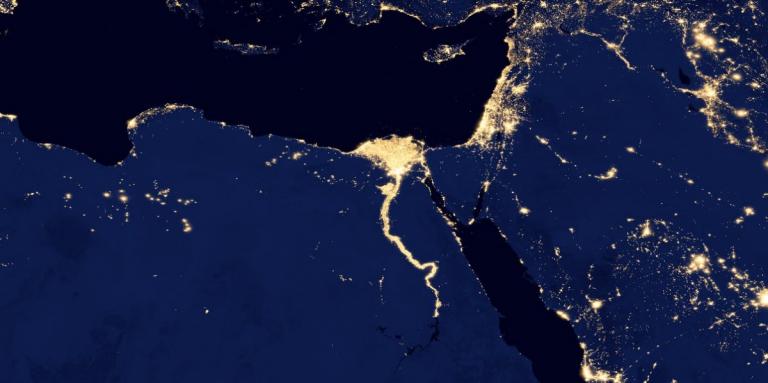
It’s good to be back in Cairo. My wife and I spent the first four years of our married life living just south of the city, so it’s always at least slightly emotional for us to return to our first shared home. We’re really pleased, too, that one of our sons will be joining us here in slightly more than thirty hours, along with the rest of the tour group that we’ll be accompanying. He hasn’t been here since he was eight.
Egypt is, in many ways, much more liveable than it was when we first arrived. Many things are available now that we wouldn’t have dreamed of. We’ve seen at least a dozen McDonald’s restaurants, as well as Pizza Huts and KFCs — all of which, I suppose, represents a kind of progress. Sort of. Maybe. There was a World Gym right on the beach in Alexandria, and a gorgeous Carrefour-anchored shopping mall on the road headed south from Alex to Cairo. I think that there’s a Carrefour supermarket in Maadi now, as well, which is the town in which we actually lived. By way of contrast, although I don’t personally know it to be true, we were told when we first arrived in Egypt that toilet paper had come to the country only about a year and a half before we did.
On the other hand, there is still great poverty in many areas, and garbage collection is visibly inadequate — as is public transportation.
But I have hopes for Egypt’s future. And those hopes are partly rooted in its past. There is, quite simply, no country on the planet with a richer history, with a more consistently interesting story to tell. There has never been a time when it hasn’t been fascinating and important.

Herodotos apparently never actually called Egypt “the gift of the Nile,” although he is famously and commonly believed to have done so. Rather, at his Histories 2.5, he describes a specific portion of Egypt as “a gift of the river.” But the entirety of Egypt is very much the gift of the River Nile, as is unmistakably demonstrated by the satellite image above.
Posted from Cairo, Egypt











